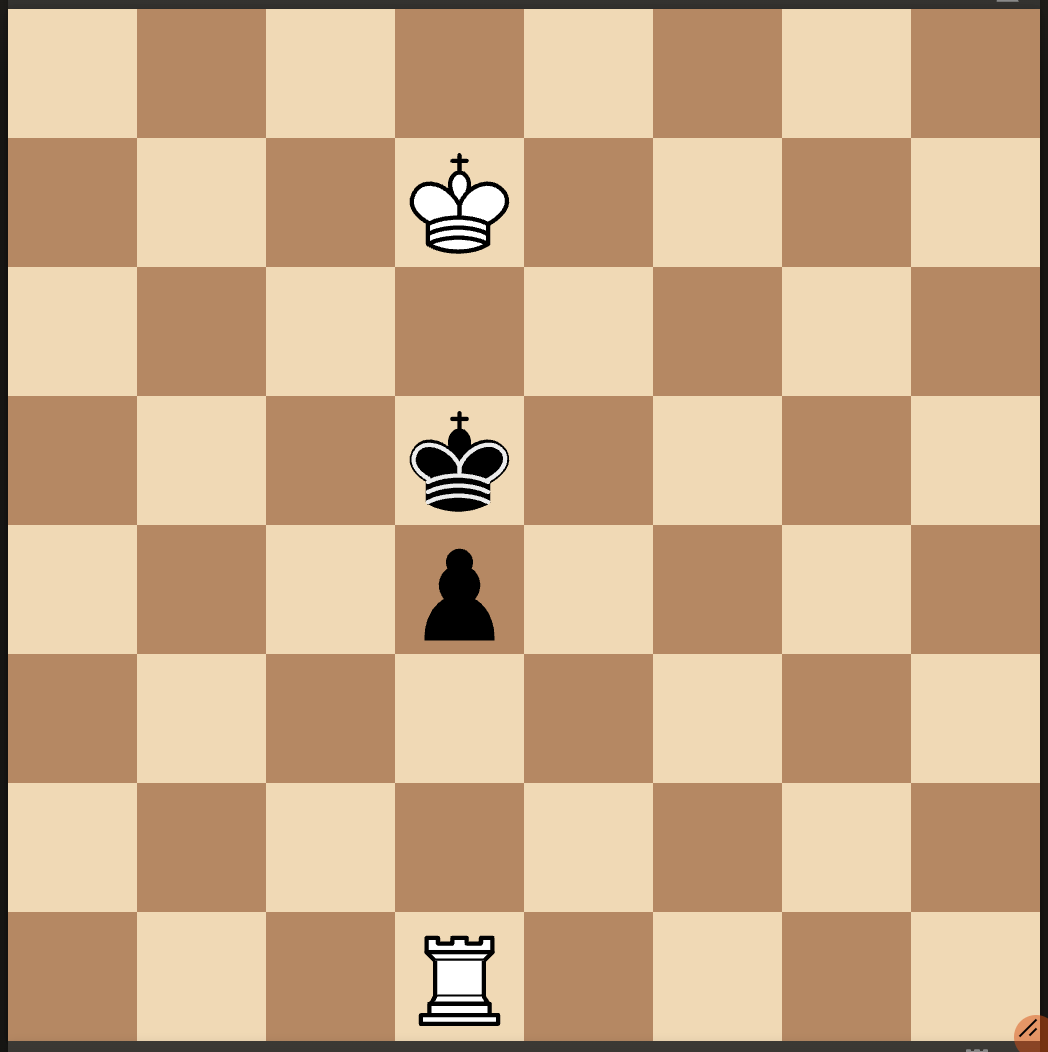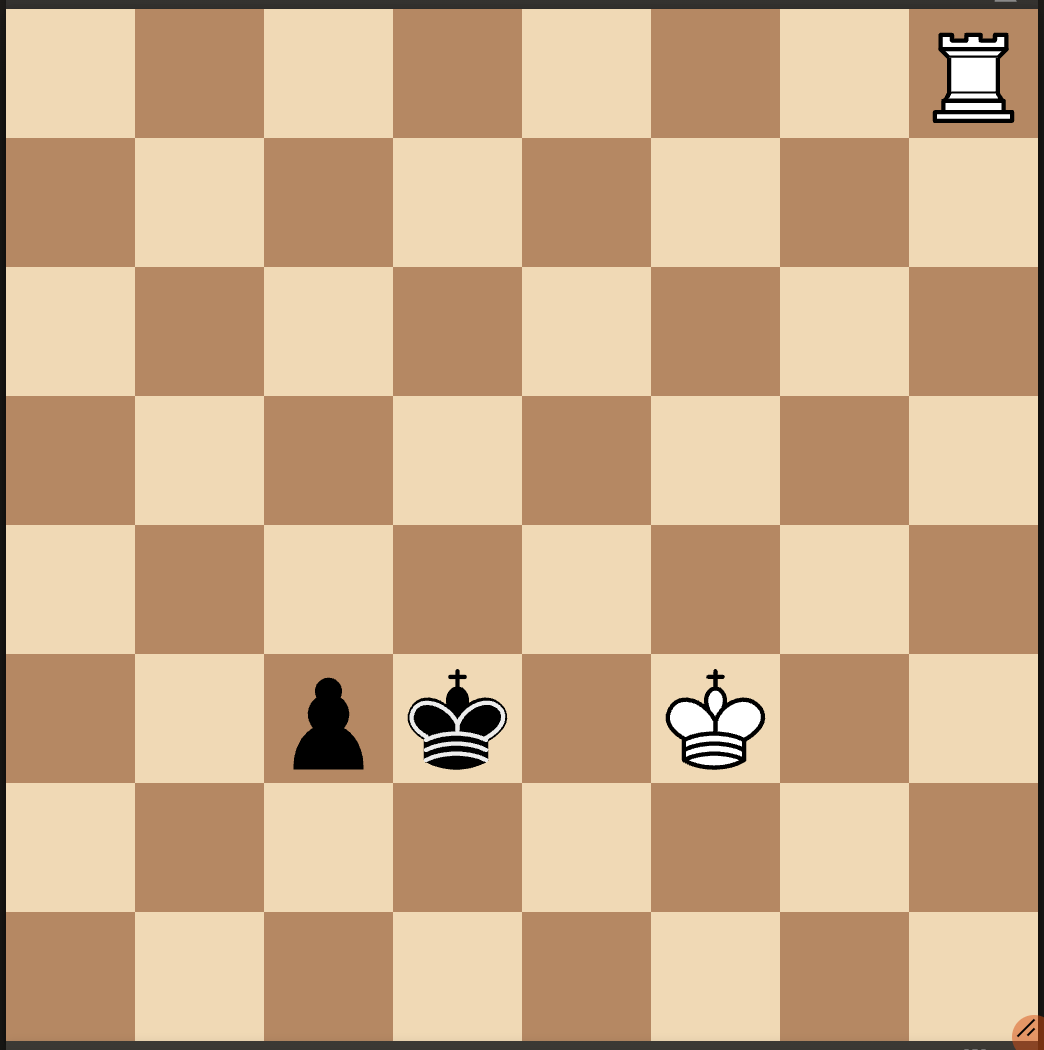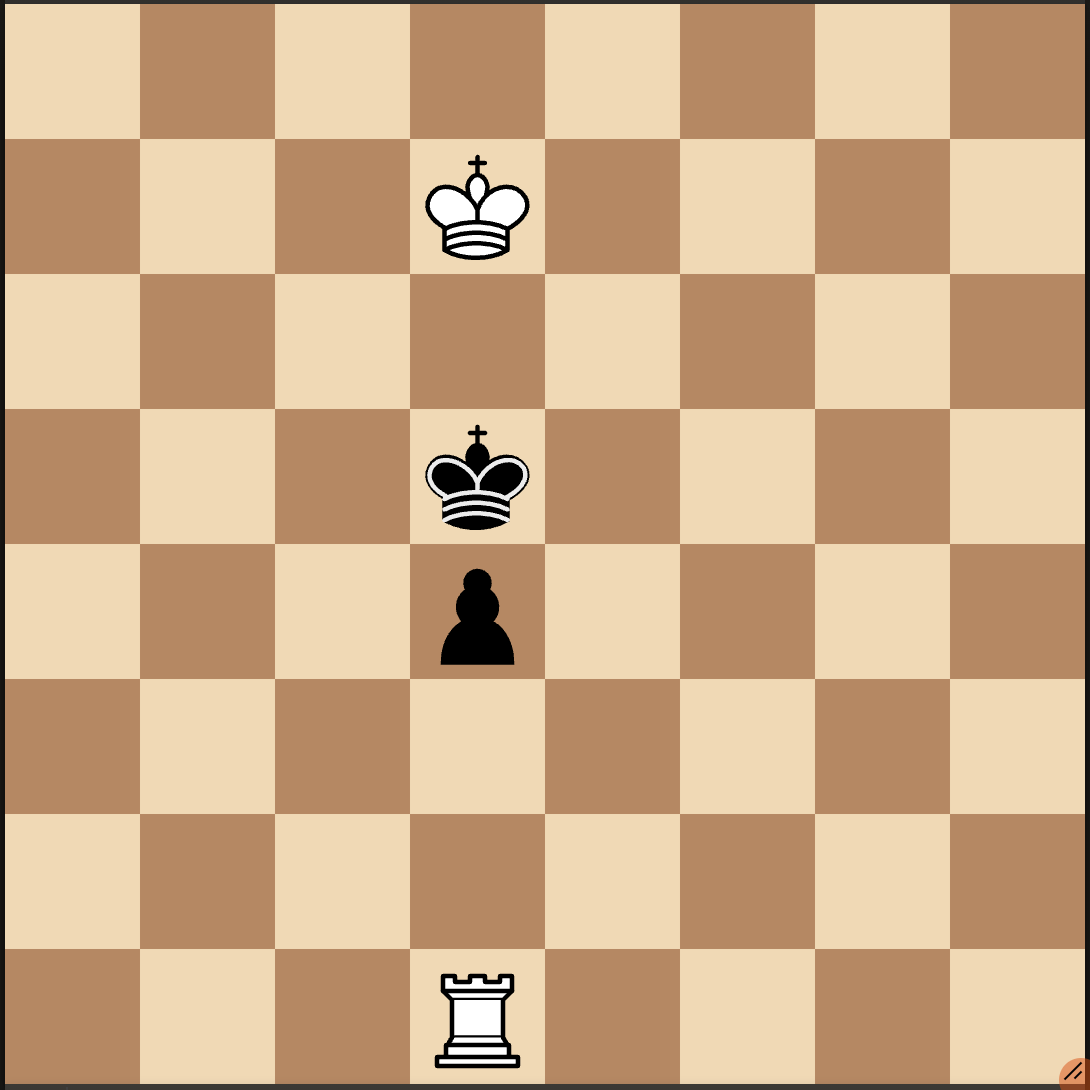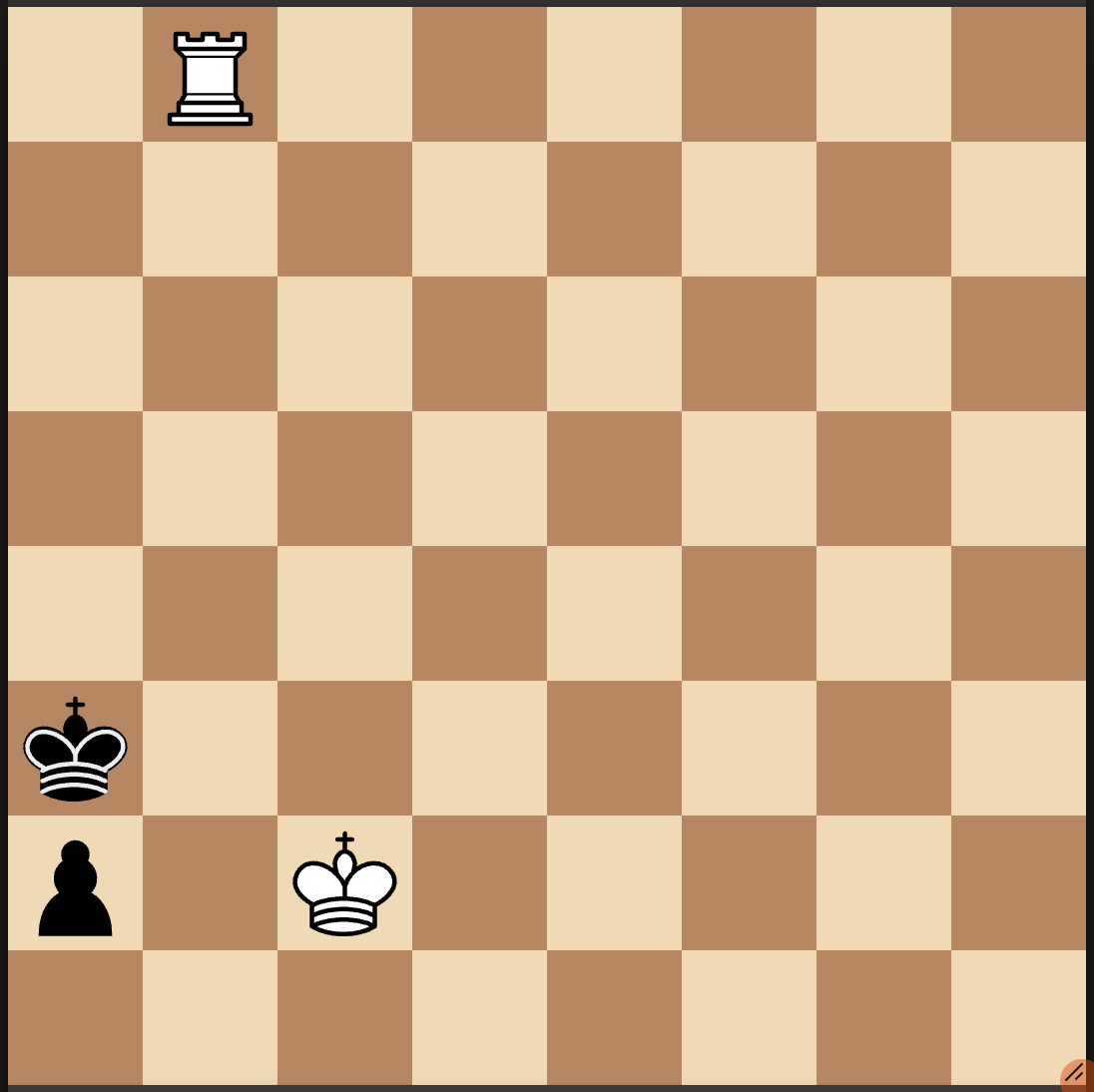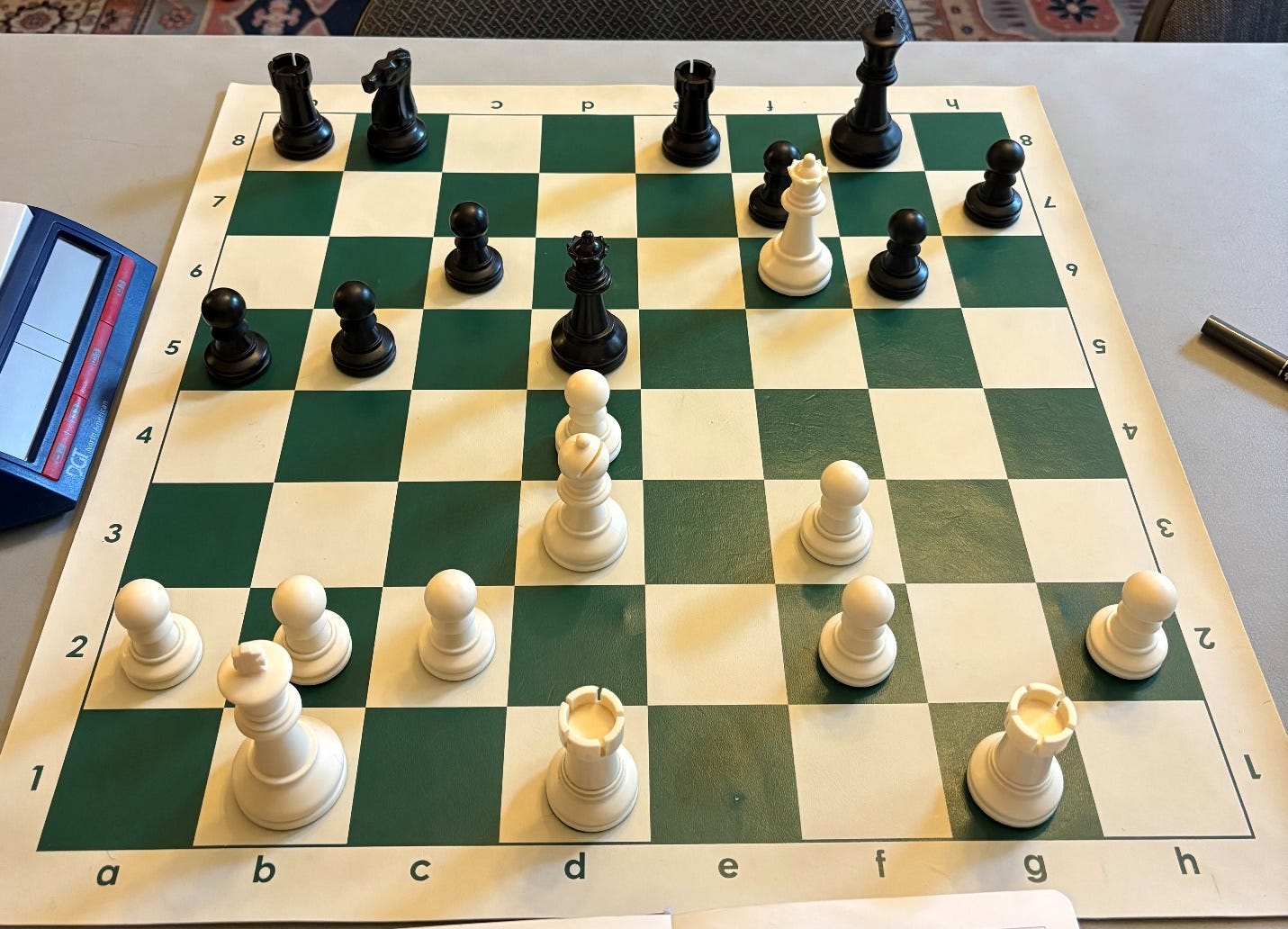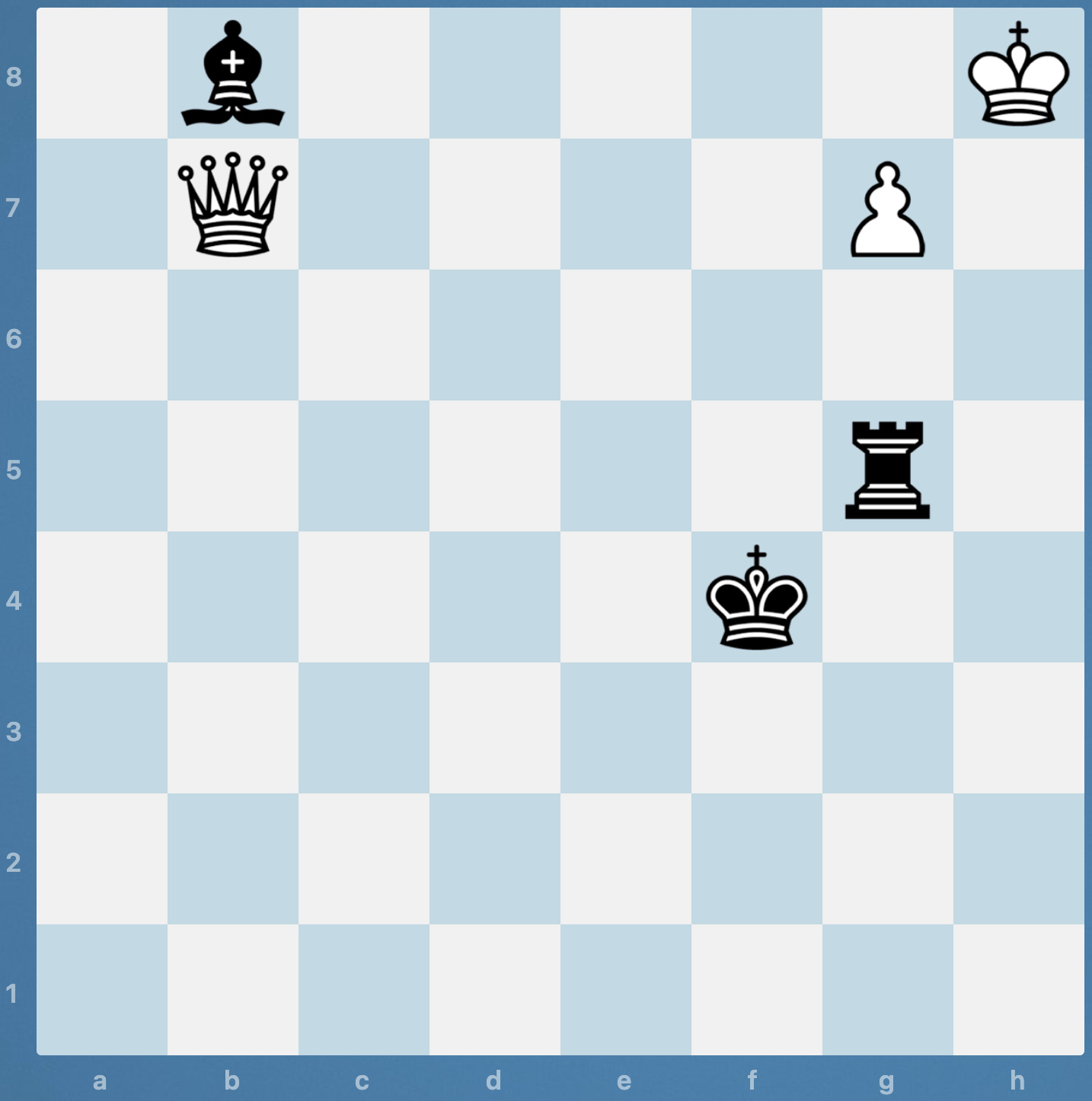In This Issue: From The Skittles Room Endgame Corner, by IM Silas Esben Lund A Texan at the Marshall, by Matthew B. E. Hughes Chess Toons En Passant Problems, Problems, curated by Alexander George Editor's Note
Welcome back, fellow chess players, to this edition of the Marshall Chess Club's fortnightly bulletin, The Marshall Spectator.
We are looking forward to the 13th NY International Super Swiss next month, July 16-July 20, with a Prize Fund of $10,000! The event will be held at our historic townhouse in the West Village, located at 23 West 10th Street, and will feature many titled players - Norms may be possible! Please direct all questions about the event to our Executive Director, Carlos Chavez, who can be reached at carlosc@marshallchessclub.org.
In other club news, Summer Camps have officially started! Thanks to the Tournament and Membership Committees, we are excited to share that for kids who register for multiple weeks of camps, we will have special prizes!
If you have any questions about our camps, you can email Kevin at kevinf@marshallchessclub.org.
Looking back over the last two weeks, we have had a plethora of events for our members to participate in.
The Under 2000 Morning Action on June 21 had 54 players registered and concluded with the following 6 players winning $77.50 each for their perfect 3 out of 3 performance: Marshall Kaiser, Anthony Li, Dante Mayeno, Mingrui Ju, Manish Suthar, and Victor Kenny-Maheux. The following 5 players shared in a class prize, winning $39.80 each for their 2 out of 3 score: Blake Herman, Charlotte Chang, Hudson Belelieu, Robert Babbage, and Arvind Singh.
The Morning Masters on June 21 had 7 players and was won by CM Henry He, who scored 3 out of 3 to win $53, while FM Aditeya Das won $35 for his 2 out of 3 score.
The Friday Rapid on June 20 had 18 players registered and was won by GM Mark Paragua who scored 4 out of 4 to win $100, while Jeremy Yoon and Wan Qin Li scored 3 out of 4 to win $37.50. Victor Kenny-Maheux and Caleb Rakestraw-Morn won $25 each as a class prize for their performance, while Kathleen De Villa and Farirai Gumbe scored 2.5 out of 4 to win $12.50 each.
The Thursday Open on June 19 had 22 players registered and was won by Aleksandr Gutnik who scored 5.5 out of 6 to win $440. Nkosi Nkululeko won $176 for his 5 out of 6 score, while FM Nathan Resika scored 4.5 out of 6 to win $88. Farirai Gumbe, Kara Chan, and Alexander Lapanowski scored 3.5 out of 6 to win $58.67 each.
The Thursday Action on June 19 had 40 players registered and was won by IM Liam Putnam who scored a perfect 4 out of 4 to win $147, while Vladimir Bugayev scored 3.5 out of 4 to win $98. CM Kyle Dong and Michael Glick won $37 for their 3 out of 4 score, while FM Weiji Ma, FM Aditeya Das, FM Leif Pressman, Kiren Nasta, and Bryan Weisz won $14.80 each for the same score. Alec Hyunmook Choi, Dylan Rossi, Kevin Xu, and Aziz Abdijalilov won $18.50 each for their even score of 2 out of 4.
The Juneteenth Action on June 19 had 61 players registered and was won by our club champion, IM Mykola Bortnyk and Joshua Colas who scored 5.5 out of 6 to win $400 each. IM Liam Putnam won $100 for a 5 out of 6 score, while IM Jay Bonin won a $200 class prize for his 4.5 out of 6 performance. Sean Huang also won a $200 class prize, scoring 4 out of 6, while Daniel Yassky, Alec Choi, and Liam Kojuharov won $66.67 each for the same score.
The Marshall Masters on June 17 had 14 players registered and was won by IM Liam Putnam and FM Tanitoluwa Adewumi who scored 3.5 out of 4 to win $169 each. Santhosh Ayyappan won $63 for a 3 out of 4 score, while Joshua Block and Daniel Wang won $25 each for their 2 out of 4 performance.
The Rated Beginner Open on June 15 had 25 players registered and was won by Kaonjee Gallimore and Julien Kulla who scored 3 out of 3 to win $156.50 each.
The Saturday Game 50 Open on June 15 had 47 players registered and was won by GM Mark Paragua, GM Michael Rohde, Hoang Huynh, and Kylan Huang who scored 3.5 out of 4 to win $112.50 each. Winsley Wu and Tommy Kozlek won $67.50 each for their 3 out of 4 score.
The Saturday Under 2000 Morning Action on June 14 had 28 players registered and was won by Alec Hyunmook Choi who scored 3 out of 3 to win the $175 first place prize. Liam McPeake won a $105 class prize for his 2 out of 3 score, while the following 4 players won $17.50 each for their 2.5 out of 3 performance: Armaan Jain, Kyle Clayton, Asher Collins, and Travis Henry-Reid.
The Saturday Game 50 Under 1800 on June 14 had 49 players registered and was won by Rhyan Grennan, Chris DeDona, and Travis Shafer who scored a perfect 4 out of 4 to win $212.33 each.
The Morning Masters on June 14 had 7 players registered and was won by GM Mark Paragua and CM Alexander who scored 2.5 out of 4 to win $44.
The Women and Girls’ Open on June 13 had 8 players registered and was won by Diana Romanko who scored a perfect 3 out of 3 to win the $42 first place prize. Emmi Gaskins, Victoria Vietri, and Sofia Popova scored 2 out of 3 to win $7 each.
The Afternoon Action on June 13 had 6 players registered and was won by Etan Lankri who scored 2.5 out of 3 to win $45, while Sean Keenan scored 2 out of 3 to win $30.
The FIDE Blitz on June 13 had 61 players registered and was won by GM Brewington Hardaway who scored 8 out of 9 to win the $305 first-place prize. FM Tanitoluwa Adewumi scored 7.5 out of 9 to win $152, while FM Linxi Zhu, Alan, and Hursh Mehta won a $76.25 class prize each for their performance of 7, 6.5, and 6 out of 9, respectively. The following 5 players won $15.25 each for their 5 out of 9 score:Andrew Colwell, Luis Manuel Ulloa, Tommy Kozlek, Rishan Malhotra, and Travis Shafer.
The Thursday Action on June 12 had 40 players registered and was won by IM Michael Song who scored 4 out of 4 to win $143, while GM Brewington Hardaway, FM Tanitoluwa Adewumi, and GM Michael Rohde scored 3.5 out of 4 to win $55.67 each. Alec Hyunmook Choi scored 3 out of 4 to win $72, while Jeremy Graham, Dylan Rossi, and Joseph De Villa scored 2.5 out of 4 to win $24 each.
The Rated Beginner Open on June 8 had 28 players registered and was won by Logan Shmulenson, Kenny Ho, and Jonnathon Cowger who won $116.67 each for their perfect 3 out of 3 score.
The FIDE Premier OPEN on June 8 had 32 players registered and was won by Leif Pressman and GM Michael Rohde who won $625 for their 4 out of 5 score, while the following 8 players won $31.25 each for their 3 out of 5 score: Mark DeDona, Ethan Kozower, Connor Junda Wang, Mason Li, Nivaan Shrivastava, Rohan Lee, Owen Levine, and Rishithi Bhoopathi.
The FIDE Premier Under 2000 on June 8 had 44 players registered and was won by Lucas Lu, Ciprian Solomon and Richardson Qiao who scored 4 out of 5 to win $342.67 each. Marissa Lu won a class prize of $220 for her 3.5 out of 5 score, while Akira Endo also won $220 for a 2.5 out of 5 score. Gabriel Lin won a class prize of $184 for his 1.5 out of 5 performance.
The Under 2000 Morning Action on June 7 had 36 plyaers registered and concluded with a 8-way tie. The following players scored 2.5 out of 4 to win $39.38 each: David Campbell, Raymond Singh, Dante Mayeno, Alvin Lou, Aidan Amin, Caleb Garcia, Kyle Cheng, and Marko Scekic. Charlotte Chang and Rayyan Sayeed scored 2 out of 4 to share in a class prize, winning $67.50 each.
The Chess960 Tournament on June 6 had 28 players registered and was won by our club champion, IM Mykola Bortnyk, who scored a perfect 4 out of 4 to win the $163 first place prize. There were 5 players who finished with 3 points, winning $26.25 each: GM Andrew Tang, FM Bryan Lin, IM Kevin George, Alan, and Jake Senczakowicz-Gibo. Travis Henry-Reid won a $49 class prize for his 2 out of 4 performance, while Isaac Statz and Noah Gillston won $24.50 each for the same score. Ben Statz won a $39 class prize for his 1.5 out of 4 score, while Reginal Denis and Matthew Medina won $19.50 each for their 1 out of 4 score.
We look forward to seeing you at the club soon!
Endgame Corner, by IM Silas Esben Lund
In this endgame column (and the following), we will take a deep dive into positions with rook versus pawn. These positions arise often in practical games, so it's important to master them. Also, they have great educational value as they are usually very sharp, where every tempo counts in the effort to promote the pawn/stop promotion. Both sides have tricks to avoid being slowed down in this race, and we will cover them all. A key factor is how the rook side (White in our examples) gets his king closer to the pawn - as the rook cannot fight it alone (apart from a few rare cases).
The king can approach the pawn: 1) From behind. Here, the position of mutual zugzwang (PMZ) is helpful (see the first diagram below). White to move is a draw, Black to move loses. 2) From the side. We can use the key position as a way of navigating a completely open board. In the 'Key Position', the pawn and two kings are on the third (or sixth) rank, and it is vital who is to move: White to move wins, Black to move draws.
Example 1: Position of mutual zugzwang (PMZ). White to move is a draw, Black to move loses. The PMZ works on all files.
You can play through the exercises with annotations here.
1... Ke4 Black to move has to give way, and the White king breaks into the d-pawn. For example, 2. Kc6 d3 3. Kc5 Ke3 4. Kc4 d2 5. Kc3 Ke2 6. Rxd2+.
Example 2: The Key Position.
1... Kd2 The following movement with the king always works. (1... c2 2. Rd8+ Kc3 3. Ke2 This idea only works against a rook's pawn (a, h). In this example, Black has plenty of space on the other side of the pawn (a- and b-file) and easily saves the game. 3... c1=Q (3... c1=N+!? is OK - only promotion to a knight on the corner square doesn't work.) 4. Rc8+ Kb2) *
Notice that White also wins if the rook is on the first rank in the Key Position:
1. Rd1+! Kc2 2. Ke2 Kb2 3. Rd8! This method always works. (3. Kd3!? c2 4. Rd2 but not if Black has a knight's pawn (b, g), in which case there are stalemate tricks after 4... Kb1 5. Rxc2) 3... c2 4. Rb8+! Kc3 5. Rc8+! Kb2 6. Kd2 *
After this introduction of PMZ and the Key Position, it is time for a couple of puzzles.
Exercise 1: White to move and win.
(Hint: Use the Position of Mutual Zugzwang (PMZ) to navigate this position where the white king is approaching the pawn from behind.)
Exercise 2: Black to move and draw.
(Hint: Use the Key Position as a way to navigate and move the kings across a completely open board.)
Solution to Exercise 1:
1. Rd2!! (1. Rd1? d4! 2. Kd7 Kd5! PMZ with White to move! It's a draw.) 1... d4 (1... Ke4 2. Kd6 d4 3. Kc5 d3 4. Kc4) 2. Rd1! Kd5 3. Kd7!
Black is to move, and will have to let the white king in. 3... Kc4 4. Ke6 d3 5. Ke5 Kc3 6. Ke4 d2 7. Ke3 1-0 White wins. 1-0
Solution to Exercise 2:
(If White moves first, then cutting the king off on the 5th rank wins: 1. Rh5)
1... Kc5 The correct king move: Black must body-check the white king. (1... Kb5 2. Kf7 a5 3. Ke6 a4 4. Kd5 This leads to the key position with White to move: 4…Kb4 5. Kd4 Kb3 6. Kd3 a3 White wins with 7. Rb8+ Ka2 8. Kc2 Ka1 White is winning after for instance 9. Kb3 (However, there is a mate in 3 with: 9. Rb1+ Ka2 10. Rb3 Ka1 11. Rxa3#))
2. Kf7 a5 3. Ke6 a4 4. Ke5 a3 As a main rule, Black should push the pawn when he can, not to lose any time. (However, the move-order 4... Kc4 5. Ke4 a3 also works.)
5. Ke4 (5. Rh4 Kb5 is not dangerous for Black. The white rook is not well-placed on the fourth rank. 6. Kd4 Kb4 7. Kd3+ Kb3 We have the Key Position with White to move, but with the rook on the fourth rank. White must lose a tempo with the rook, and then it is Black to move in the Key Position.)
5... Kc4
This is the moment where White must lose a tempo.
6. Ra8 Kb3 7. Kd3 We have the key position with Black to move. 7…Kb2 (7... a2 The pawn push doesn't work in the key position if the pawn is an edge pawn. 8. Rb8+ Ka3 9. Kc2
a1=N+ Last chance, but promotion to knight on the corner usually doesn't work. (9... a1=Q 10. Ra8+ Kb4 11. Rxa1) 10. Kc3 Ka2 11. Rb7 Black is in zugzwang and will lose the knight or get mated.)
8. Rb8+ Kc1 Keeping the white king out. However, White still has one trick left: 9. Rc8+ Kb2 (9... Kb1 also works as 10. Kd2 a2 11. Rb8+ Ka1 12. Kc2 is stalemate. Compare to our introductory example with a c-pawn.) 10. Rc2+
10…Kb3 An exception: We have the Key Position with White to move, but the rook is poorly placed on the second rank, and White must lose a tempo. (Again, 10... Kb1 loses to a sneaky intermediate check: 11. Kc3 a2 12. Rb2+ Black loses the a-pawn or gets mated in two moves: 12…Ka1 (12... Kc1 13. Rxa2) 13. Rf2 Kb1 14. Rf1#)
11. Rc8 Kb2 etc.
IM Silas Esben Lund, Marshall Spectator Contributor
A Texan at the Marshall, by Matthew B. E. Hughes
After about 50 years playing chess (off and on), and more than 30 years as a trial lawyer, I fulfilled a life-long quest to visit (and join) the Marshall Chess Club in 2024. I came to New York because my wife was completing a month-long art residency in Chelsea. Each day I would drop her off and then walk down Sixth Avenue to 10 Street. Little did I know, I was preparing to violate the Krauthammer Rule of Chess: No Games with the “Short Pants.”
The late columnist, Charles Krauthammer (1950-2018), discussed his “rule” in a fun column about his home-based Monday Chess Club. All his Washington friends and acquaintances were welcome, but the kids were not. Why? The Great and Good of Washington, DC, might lord it over the political world, but they could not stomach losing a chess game to a kid.
Charles Krauthammer would never have made it at the Marshall.
Between June 1-23, 2024, I played 23 tournament games under the watchful gaze of the bust of Frank J. Marshall. Since I had played my last tournament games in Texas in the 1990s, my chess odyssey at the Marshall started poorly. Very poorly. I lost five straight games before squeaking out a draw against a 1500 player. I didn’t get a win until my 8th tournament game. I didn’t hit my stride until a five-round tournament (Game 90 + 30 second delay) on June 21st-22nd. I ended this tournament up 3 ½-1 ½ and won about $150 in prize money. As a club member, I took advantage of showing one of my games to the great IM Jay Bonin. He graciously pointed out flaws and made suggestions during his “Thursday night” game analysis sessions.
I returned to the Marshall on June 7, 2025—after a year off--and proceeded to lose all three games in a Game 25 Minute tournament. I also dropped another game three days later. (News flash: You can’t play just once a year.) And, as you might have guessed, all four games were against….short pants. Krauthammer!
All humor aside, the magnificent thing about being a member of the Marshall Chess Club is having access to a wide array of players, whose playing strength ranges from novice to grandmaster, and having access to multiple events scheduled each week. Overall, the Marshall club members—regardless of age and playing strength—are remarkably good sports, being gracious in victory and classy in defeat. Sadly, sportsmanship is less consistently shown at tournaments in Texas.
The position below is from one of my last games at the Marshall with white to play after 15…g6. (Black ultimately won on time.)
I am back in Houston now. But I look forward to returning to the Marshall soon and playing more games at this incomparable club.
Matthew B. E. Hughes, Marshall Chess Club Member & Proud Texan
En Passant
FIDE’s latest transfer list reveals that several strong players have changed federations. The most prominent of them is Gata Kamsky (pictured) who is moving to France after decades of membership in the US Chess Federation.
FM Tanitoluwa Adewumi has repeated as the US Cadet Champion in Schaumburg, IL, winning the 2025 eight-player Round Robin with a round to spare. The annual US Cadet Championship pits the highest-rated American chess players under the age of 16 (as of the first of the year) against each other for the title of Cadet champion.
Round eight of the Cairns Cup 2025 has set up a dramatic final round. After putting up her fourth consecutive win, against GM-elect Bibisara Assaubayeva, IM Carissa Yip leads the event. She'll face her compatriot and friend, IM Alice Lee, in a bittersweet last round where only one, but not both, can win the tournament and achieve the grandmaster norm.
Chess Toons
Problems, Problems, curated by Alexander George
Jacob Mintz, 1982
Helpmate in 3
diagram
White knight to f5
As is the custom with helpmates, Black moves first, then White, etc. in such a way that after White's 3rd move, Black is mated. All moves must be legal. The problem here is to envisage what a mating situation would look like and then to try the maneuver the pieces cooperatively to get to that position. This problem has two parts - and its beauty consists in how the solutions to those parts are related to one another.
---
Last Issue’s Puzzle: Pal Benko, 1974
Helpmate in 2; two solutions. Duplex
Yes, the remaining two solutions (with White to play first) complete the possible promotions of the pawn. One: 1.g8=R Be5+ 2.Qg7 Rh5 mate. And: 1.g8=B Rh5+ 2.Qh7 Be5 mate. Across the four solutions, the pawn promotes to every possible piece - just beautiful.
---
Alexander George
Editor's Note
As always, if you have any feedback, comments, or would like to submit an article please contact us directly at td@marshallchessclub.org.
Enjoy, and thanks for reading!
The Marshall Chess Club
23 West Tenth Street New York, NY 10011
212.477.3716
Thanks for reading The Marshall Spectator! Subscribe for free to receive new posts and support the club.









